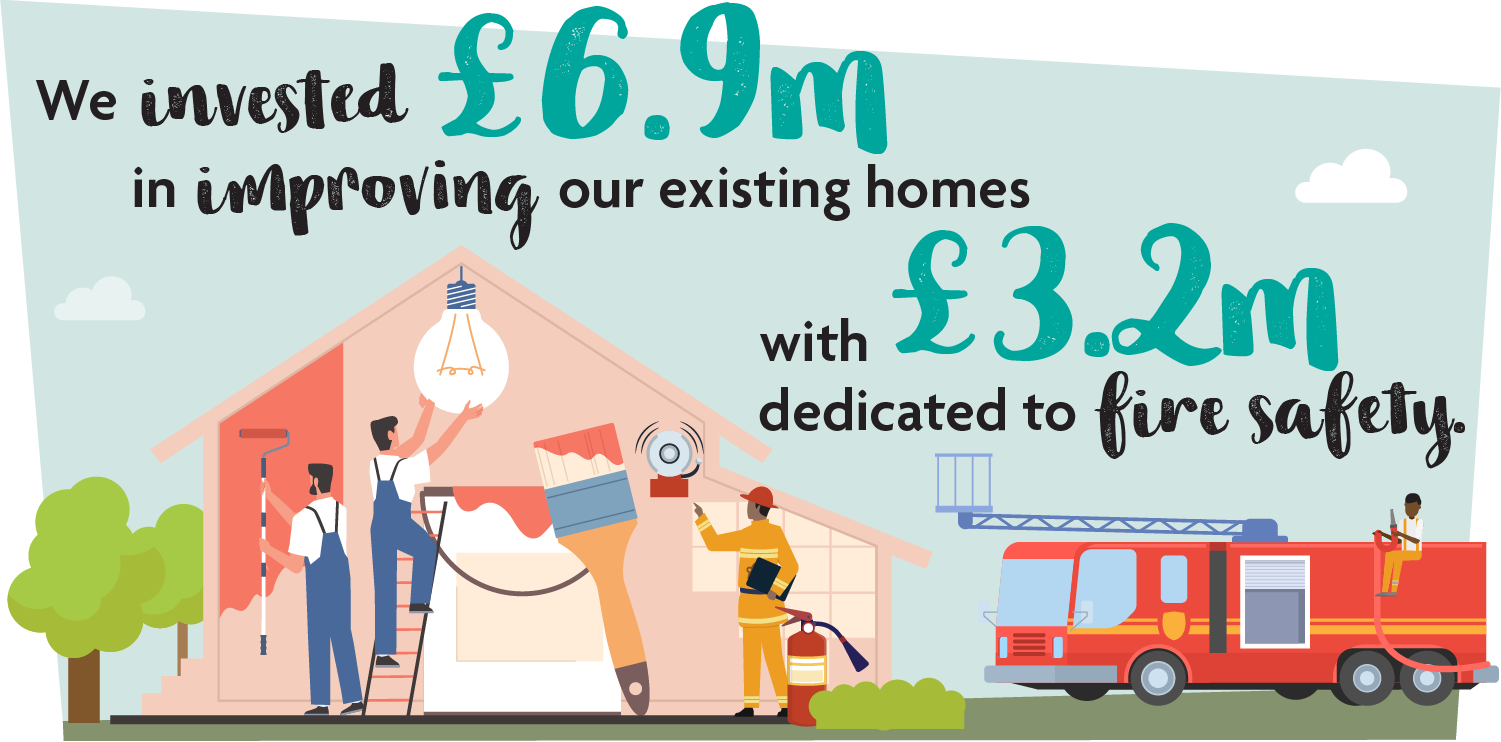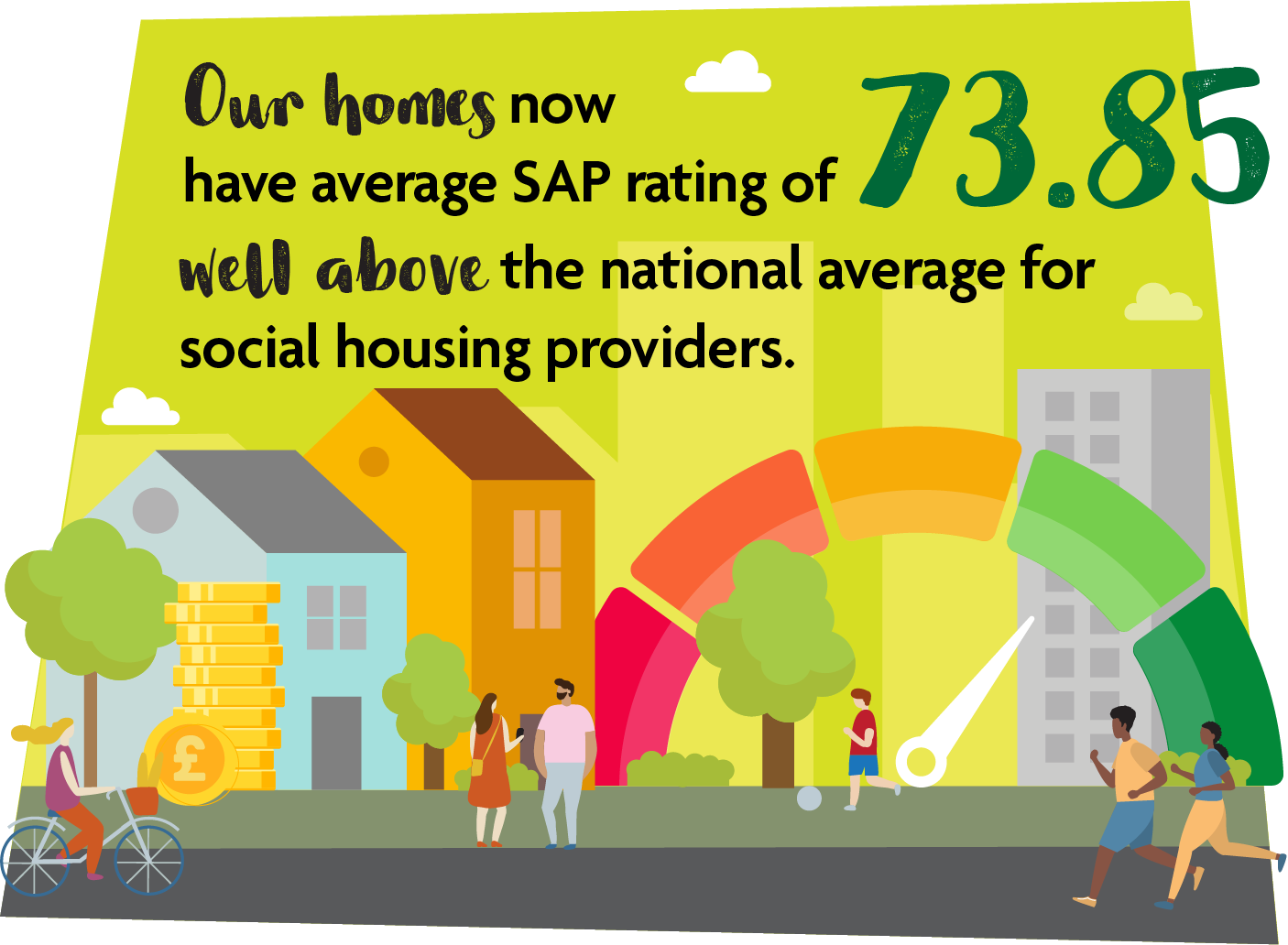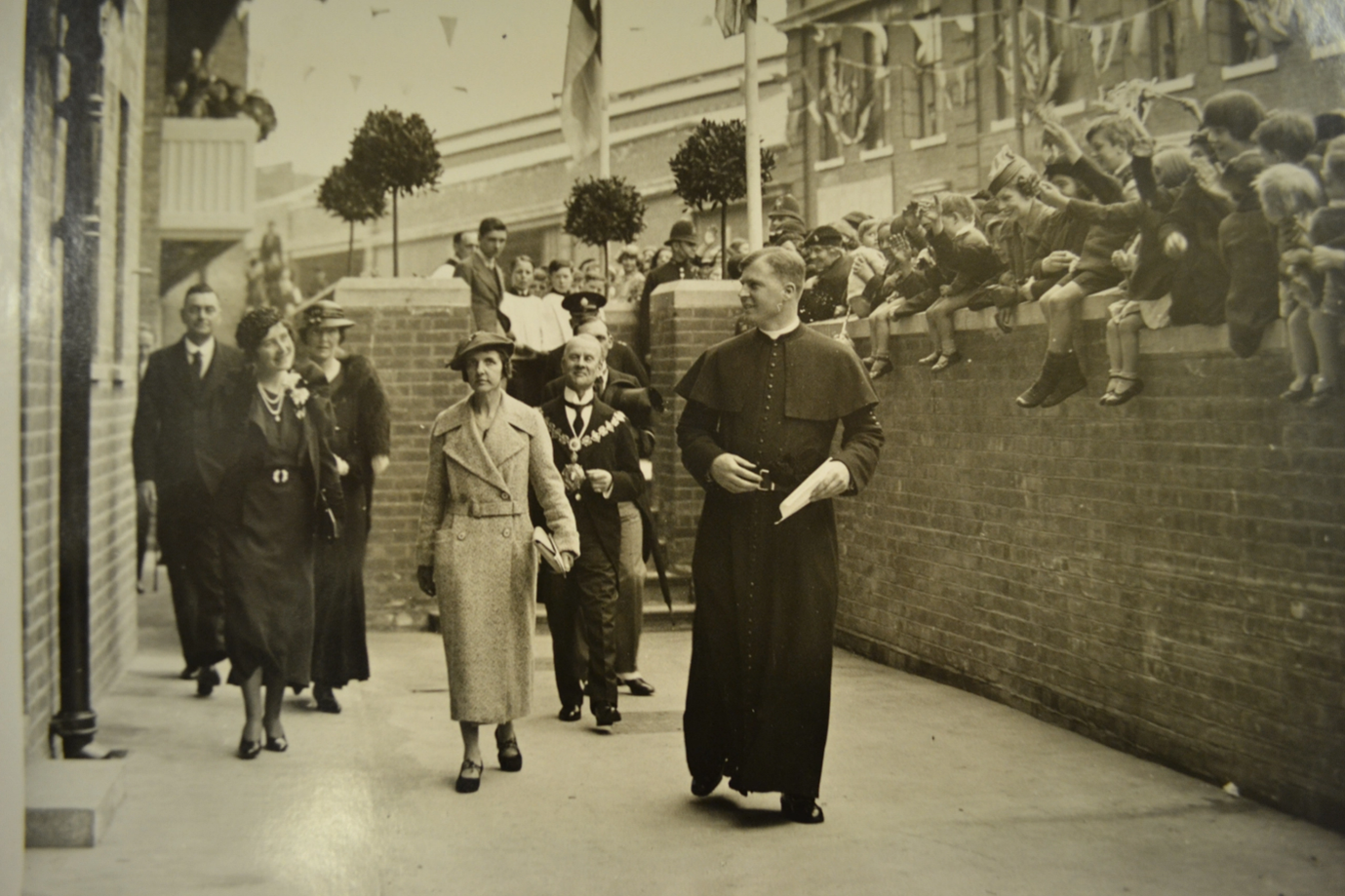Homes that people are proud to live in

We know it’s important to build more homes, but equally important to ensure we maintain and improve our existing homes to keep them decent, safe and secure.

In 23/24 we invested £6.9 million into improving our existing homes, with £3.2 million dedicated to fire safety alone.
Our priority focus on fire safety hasn’t stopped since the Grenfell tragedy.
Over the course of the year, our Health and Safety and specialist Fire Safety Teams completed 358 fire risk assessments and addressed 1,932 fire safety actions to make sure our residents are as safe as possible while at home. We registered all our high-risk buildings with the new Building Safety Regulator ahead of the deadline and reduced high-risk fire actions from 31 to zero.

We also completed five building safety cases in 2023/24. A building safety case is a detailed report that shows how risks related to fire and structural safety in high-rise residential buildings are being managed. It includes evidence of safety measures, maintenance, and plans to ensure the building is safe for residents alongside four resident engagement plans to make sure the people living in each building are involved in the process and kept informed about anything we’ve got planned.
We’ve worked to ensure we recruited and invested in technical skills for our Fire Safety Teams with key qualifications attained within the team, making our approach to fire safety even more robust.

Improving the data on our homes

In addition to all of the fire safety work we’ve been doing, we’ve done lots of detailed stock condition surveys to give us a better understanding of our homes and how we can look to improve them for our residents. Having more detailed information on our homes allows us to plan investments where they’re needed most.
Over 2023/24 we surveyed 45% of our homes, and now have complete and accurate data on 74% of our homes in total, up from 33% in 2022/23.
We are also now able to accurately report on the energy performance of 100% of our managed homes which will ensure we can prioritise investment and access external funding to improve the warmth and energy efficiency of our resident’s homes. Our homes now have an average SAP rating of 73.85 (a way of comparing energy performance of different homes) which is above the national average of 68.

Acting on feedback
We also listened to feedback from residents who told us that anti-social behaviour from intruders linked to street homelessness and drugs is one of the biggest concerns our residents' had about their home You told us you want repairs to main entrance doors/gates and barriers done quicker. We understand your concerns and have been taking steps to act on this, including:
- Meeting with the Police at a local level and strategic borough level to raise issues on behalf of residents and get resources focused on ‘hot spot’ areas - for example in Harrow, Enfield, Camden.
- Working with agencies that support people who are street homeless and provide outreach services so that individuals can get support and housing
- Strengthening or upgrading our door entry systems and doors /gates where needed to reduce vandalism.
- In addition, we’re improving our oversight and monitoring of repairs to door entry systems and barrier gates so that repairs are completed in a timely way and that we communicate with residents if there are delays to parts which mean a longer time to repair.
Looking forward
Looking forward to 2024/25, in addition to ensuring we meet or exceed safety standards, we’ve been working to research and implement new technology that will benefit both residents and the environment. We’re piloting schemes at Swan House and Griffin Close in Enfield, North London that look at the options to try and reduce energy bills and find solutions to make older buildings more efficient, greener and cheaper for our residents to live in. We are also working with Places for People to apply for government funding to improve the energy efficiency of resident’s homes.

Celebrating 100 years: Irene Barclay
We’re proud to have helped ensure Irene Barclay was celebrated and remembered with a Blue Plaque this year having become the first qualified woman Chartered Surveyor in 1922, after the Sex Disqualification Removal Act had passed in 1919.
A socialist and social reformer, Irene Barclay was born in 1894 into a free-thinking family committed to serving their community. Irene encouraged residents reluctant to pay rent to improve their financial management. In 1925, after a short honeymoon with her husband, Irene was called by Edith Neville asking for help with a society she’d started with Father Jellicoe and others in St Pancras.
She was the first Estate Manager of the St Pancras House Improvement Society, later known as St Pancras Housing Association, staying in her role from 1925 to 1972. The local residents dubbed her team ‘The Landladies’ and were willing to let the surveyors into their homes, as they understood they were trying to improve the housing conditions.
Irene Barclay ‘‘There will always be problems because we are dealing with people, not things, and the art of housing management is in tackling problems, and solving some of them’’ Irene Barclay, People need Roots, published 1976.

Father Scott takes the Duchess and Irene Barclay to inspect the new St Joseph's flats, 14 May 1936.